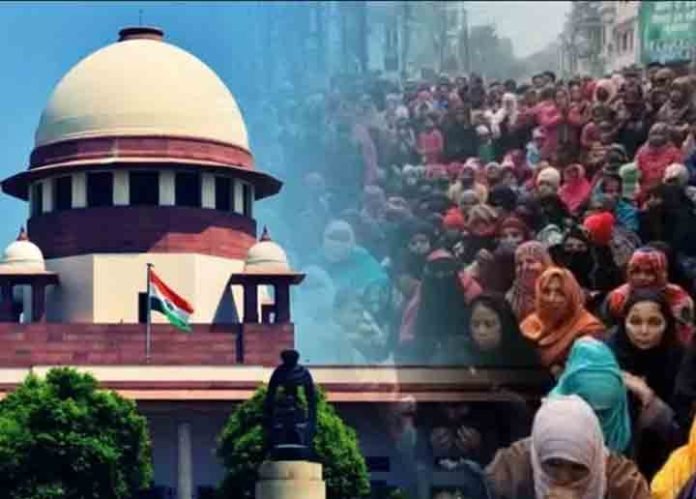INVC NEWS
New Delhi : Explore the Supreme Court’s pivotal decision overturning the release of convicts in the Bilquis Bano case. Uncover the legal complexities and pursuit of justice in this impactful ruling.
Supreme Court overturns
In a landmark decision, the Supreme Court, headed by Justice B.V. Nagarathna and Justice Ujjwal Bhuiyan, overturned the Gujarat government’s release of 11 convicts involved in the infamous Bilquis Bano case. The decision, delivered after an intense 11-day hearing, revoked the prior release granted by the Gujarat government on August 15, 2022.
Technicalities Leading to Reincarceration
The Supreme Court attributed the reversal to technical reasons, emphasizing that the case originated in Maharashtra. Consequently, the Maharashtra government is deemed responsible for any parole decisions. This verdict nullifies the Gujarat government’s earlier resolution, necessitating the re-imprisonment of the convicted individuals.
A Glimpse into the Legal Odyssey
The legal saga of the Bilquis Bano case extends back to the 2002 Gujarat riots when seven members of her family were brutally murdered. Bilquis Bano herself was a victim of sexual assault during those tragic events.
In a previous ruling, the Supreme Court had entrusted the Central and Gujarat governments with the responsibility of submitting the original records related to the release of the 11 convicts by October 16. The technical intricacies of jurisdiction prompted the Supreme Court to quash the Gujarat government’s decision.
Justice Delayed, Not Denied
This turn of events implies that the convicts, initially released on August 15, 2022, now face a return to incarceration. The Supreme Court’s decision, while rooted in technicalities, underscores the importance of a swift and just legal process. The court asserted that the punishment meted out to the convicts aims to deter future crimes and instill empathy for the suffering of victims.
Bilquis Bano’s Plight: A Recap
During the 2002 Gujarat riots, Bilquis Bano’s family faced a horrifying tragedy, with seven members losing their lives. Bilquis herself became a symbol of collective trauma as she endured a harrowing incident of mass sexual assault. The Supreme Court, in a previous ruling, had directed the governments to provide records, seeking to maintain the integrity of the legal proceedings.
Seeking Redemption: The Convicts’ Dilemma
Last September, during the initial hearings, the Supreme Court had raised the fundamental question of whether the convicts had the inherent right to seek forgiveness. However, it cautioned against state governments adopting a selective leniency policy, emphasizing the need for rehabilitation and reintegration into society for each prisoner.
Conclusion: Upholding Justice Amidst Complexity
In conclusion, the recent Supreme Court decision to nullify the release of the Bilquis Bano case convicts serves as a testament to the complexities within our legal system. While technicalities played a pivotal role, the underlying principle remains the pursuit of justice. This decision reinforces the commitment of our judicial system to deliver fair and unbiased outcomes, even in the face of intricate legal challenges.
















